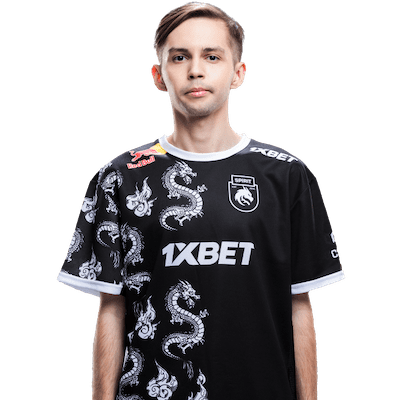In the high-stakes world of professional Counter-Strike 2, the prevailing wisdom often dictates that teams must immerse themselves in grueling bootcamps – long periods of communal living and intensive practice – to forge cohesion and sharpen skills. However, Team Spirit, a titan in the CS2 competitive scene, appears to be charting a different course. Dmitry “sh1ro” Sokolov, the team`s formidable sniper, recently offered a revealing glimpse into their less conventional, yet remarkably successful, strategy: less frequent bootcamps.
Challenging the Conventional Grind
For many esports organizations, bootcamps are a foundational element of competitive preparation. They are seen as indispensable for building chemistry, developing strategies, and maintaining peak performance. The common belief is that constant proximity fosters synergy, making teams greater than the sum of their individual parts. Yet, Team Spirit`s philosophy, as articulated by sh1ro, suggests that an abundance of a good thing can, in fact, become detrimental.
“I think we will attend some bootcamps because we have a new roster. Before some championships, we`ll have a one-week bootcamp, for example. We`re still maturing as a team, and we will definitely return to this. When I first joined, we had two bootcamps, and everything was okay. The material we worked on during those bootcamps, especially regarding interpersonal relationships, carried us forward. Afterwards, we decided to cut back a bit.”
Sh1ro`s statement highlights a nuanced understanding of team development. Early on, especially with a new lineup, bootcamps are invaluable for establishing fundamental dynamics and communication patterns. Once that foundation is laid, however, the benefits might begin to diminish, or even reverse.
The Subtle Art of Team Dynamics: Why Less Can Be More
The core of sh1ro`s reasoning lies in the human element. Prolonged, intense periods of cohabitation can, ironically, lead to friction rather than flawless synchronization. “As NertZ, for example, said that they sat for a long time at a bootcamp before a tournament, arrived, and were already a little irritating each other. That was the context, and I`m talking about the same thing,” sh1ro explained, touching upon a sentiment likely familiar to anyone who has spent extended time in close quarters.
This candid admission speaks volumes about the psychological toll of the esports grind. Players are not just mechanical units; they are individuals with personal lives, preferences, and varying needs for space. Constant proximity, while initially beneficial for bonding, can eventually breed exhaustion and, as sh1ro succinctly put it, “irritation.” Team Spirit`s approach suggests a mature recognition of this reality, prioritizing player well-being and mental freshness over a rigid, perhaps counterproductive, schedule of perpetual bootcamps.
Success from the Comfort of Home
Perhaps the most compelling evidence for Team Spirit`s unconventional strategy is their track record. Sh1ro proudly noted, “We won a Major – nobody even knew that we weren`t at a bootcamp. It didn`t hinder us, though it was hard, of course.” This isn`t mere bravado; it’s a direct challenge to the industry`s established norms. Winning one of CS2`s most prestigious tournaments without adhering to the bootcamp orthodoxy demonstrates a profound level of confidence in their established synergy and individual accountability.
The ability to perform at the highest level while comfortable in their own environments suggests a team that has achieved a rare equilibrium: where communication is intuitive, roles are well-defined, and trust is implicit. They have, it seems, mastered the art of remote synergy, relying on their existing “material” – the deep-rooted understanding and rapport among teammates – rather than continuous physical reinforcement.
The Future: A Balanced Approach
While Team Spirit has found success with fewer bootcamps, sh1ro is not advocating for their complete abandonment. He acknowledged the necessity for them, especially with a “new roster.” This pragmatic outlook underlines a strategic flexibility – bootcamps serve a purpose, but that purpose evolves with the team`s maturity and composition. “We will definitely return to bootcamps at certain periods because we have a new roster,” he confirmed, emphasizing their utility for initial team building and pre-tournament fine-tuning.
As Team Spirit prepares for IEM Cologne 2025, commencing on July 27 against Heroic, their unique training philosophy will once again be under the microscope. This prestigious tournament, boasting a million-dollar prize pool, will serve as another proving ground for their belief that sustained success in esports isn`t solely dependent on the quantity of hours spent together in a dedicated facility, but rather on the quality of their established dynamics and the mental fortitude fostered by a balanced approach.
Conclusion: A New Blueprint for Esports Excellence?
Team Spirit, guided by the insights of players like sh1ro, is effectively offering a compelling alternative narrative for competitive excellence in esports. Their success suggests that the relentless pursuit of constant bootcamps might be an outdated paradigm. Instead, fostering deep, resilient interpersonal relationships, combined with strategic flexibility and a keen awareness of player well-being, could be the true differentiator. In an industry constantly evolving, Team Spirit`s approach serves as a fascinating case study, perhaps even a blueprint, for building lasting success in a physically and mentally demanding environment.









